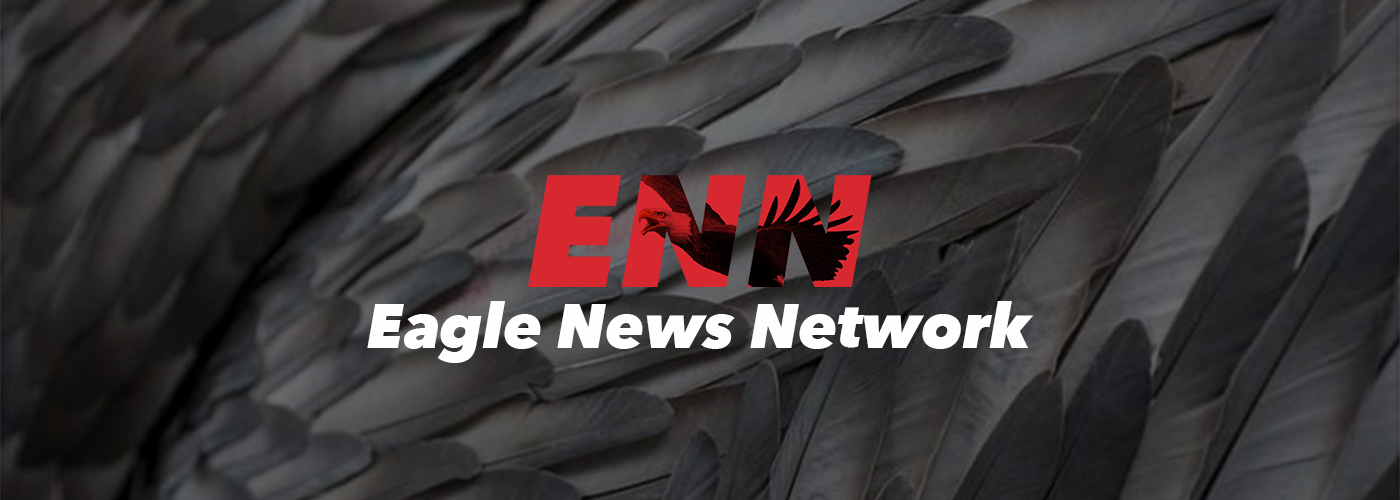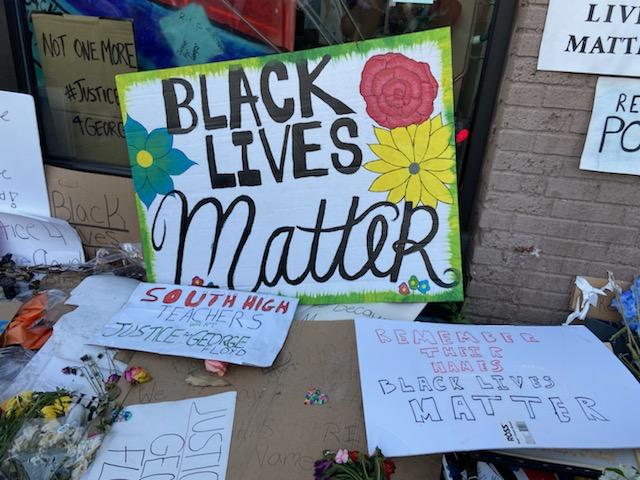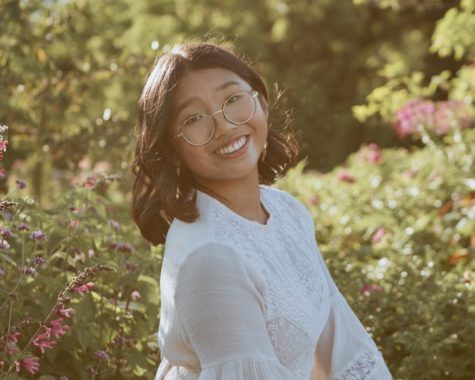Why do I have to fight for my Life?
June 13, 2020
When junior Adisa Preston saw the first captions appear, she grew numb. “I read the caption but chose to not watch the complete video, for I knew I wouldn’t make it through without crying. When I saw George Floyd, I saw my cousins, friends, partner, uncles, and honestly, my dad,” wrote Preston.
Throughout the past weeks, as recent reports of black people being killed by police repeatedly reached the news, Preston has felt a growing hopelessness that she describes as unable to be put into words: “It weighs on your heart heavily knowing that at any time and any place your life could be taken and nothing would be done to prevent it.”
Within a week of Floyd’s death, she attended two protests. The first took place right outside of the Minneapolis Target, days after it was looted. Despite that, it was peaceful: It featured speakers who were young and spoke of love, understanding and coming together.
The second protest she attended was the day after. It was held at Minneapolis’s third precinct the day after it made headlines for being burned down in a protest. The event had a different tone than the first. At first, no one knew what to do, so Preston, along with a friend, took initiative in starting the chants.
“Yelling things like ‘my life matters’ while I was less than 3 feet away from a police officer dressed in full riot gear with one hand on the rear gas dispenser and rubber bullets loaded in his gun is something I will never forget,” wrote Preston. She recalled the way the officer snarled at her with a “look of hatred in his eyes” in response to chants, and how the police were fidgeting like they were waiting to attack.
“I remember chanting, yelling, dancing, and crying, all while thinking to myself ‘WHY DO I HAVE TO FIGHT FOR MY LIFE? Why can’t we live and be free?’ ”
In the middle of the protest, she felt obliged to text her family “I love you.” She wanted her last words for them to show that she cared, in case she was severely injured by a rubber bullet.
Despite the danger and adversity of that event, she still managed to spot a reminder of hope: a rookie police officer crying during the protest Preston spotted in the edges or the formation. Preston saw that even though the officer couldn’t fully understand the pain, she was able to empathize and show a conscience. This led Preston to believe in the possibility of change for the better.
Another event that brightened her outlook was a donation drive. Although the line of people in need stretched across the block, supplies were fully stocked to accommodate everyone. Preston was inspired by the support within the community, with people being there for each other.
As always, she has continued to support other black youth. In the past, she has helped form rallies and other gatherings as a platform for their voices. In recent times, however, she has a new and greater appreciation for the smaller things she can do to support the wellbeing of others, such as checking in on loved ones or even strangers to see how they’re feeling.
Preston continues to advocate for black rights out of a personal duty that stems from her background: “My parents, grandparents, and great-grandparents did their part to fight for our freedom. Now it is my part.” However, she believes that everyone must play a role. Knowing that change against systemic racism won’t come easy, she sees these events as stepping stone in a long process. “These protests are just the beginning. Acknowledging the problem is just the beginning. The next step is changing the system for the better.”




